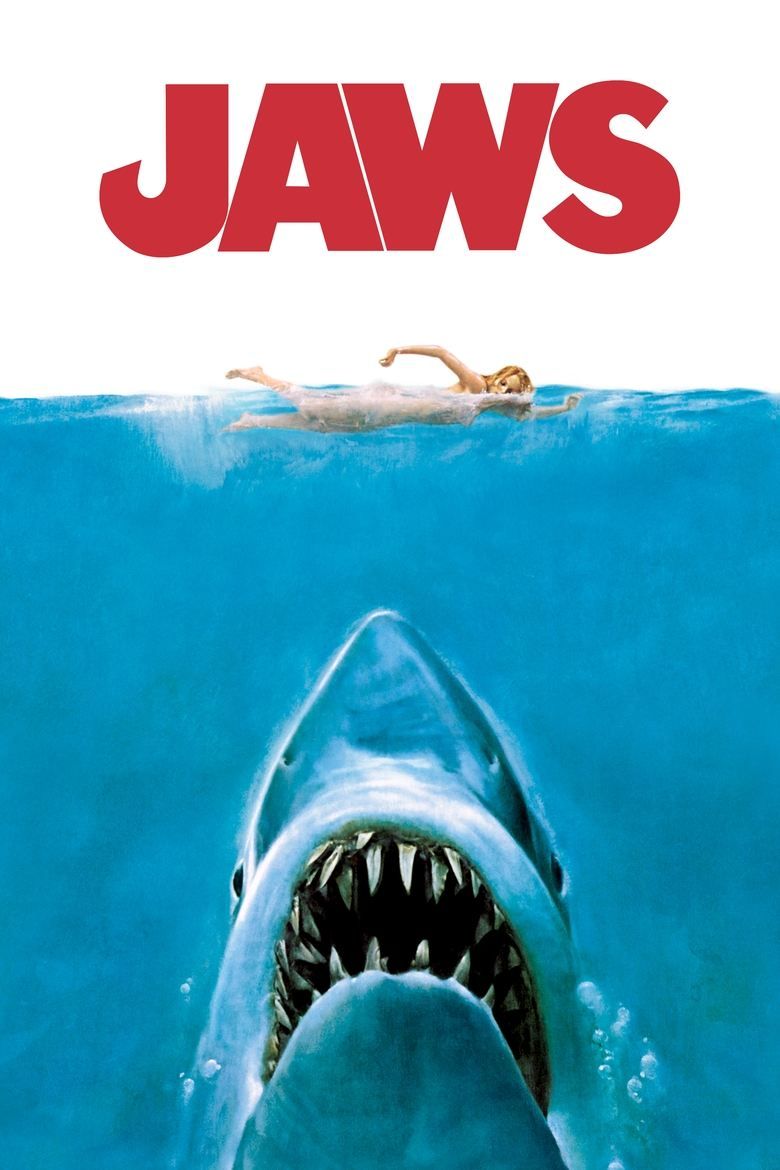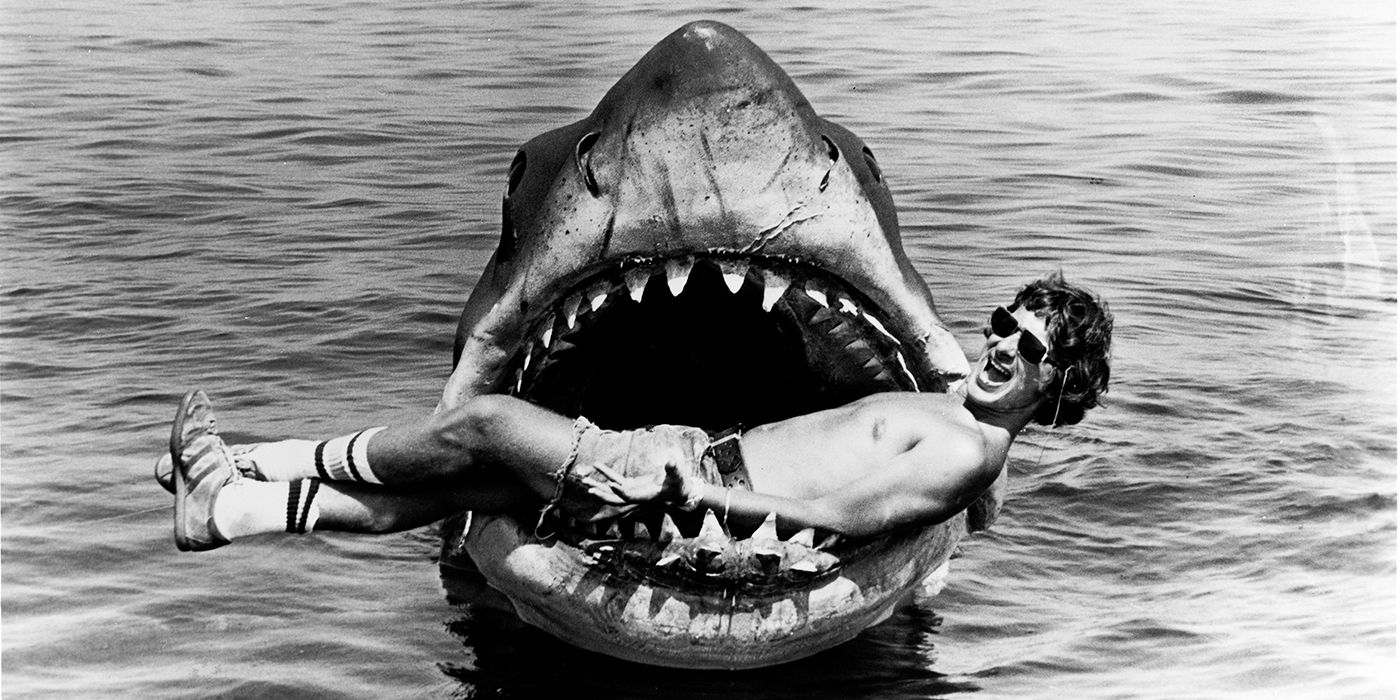Steven Spielberg Thought ‘Jaws’ Would be the Last Movie He Would Ever Get a Chance to Make
While most film lovers are using the 50th anniversary of Jaws to fondly reflect on their first viewing experience of Steven Spielberg‘s seminal summer blockbuster, the legendary director himself is reminiscing on some of the harrowing and stressful days he had while making it. “In most circumstances, summer in the Vineyard is a dream. But when you are over budget and over schedule and when I am in over my head, that summer of 1974 was a bad dream before it ever became the dream of a lifetime,” Spielberg stated in an introductory video shown to an audience in Martha’s Vineyard at National Geographic’s world premiere of the new making-of documentary, Jaws @ 50: The Definitive Inside Story.
At just 27 years old, Spielberg was put in charge of the first major motion picture to ever shoot on the open ocean during that nightmarish summer. According to his video message, after wrapping up principal photography millions of dollars over budget and about three months past his original shooting schedule was supposed to end, Spielberg “truly believed that Jaws would be the last movie I would ever be given to direct.”
‘Jaws’ Had a Historically Troubled Production
The making of Jaws was such a tumultuous experience that it’s practically a miracle the film ever got finished at all, let alone the fact that it became the masterful work of art it is universally recognized as today. Things began when Universal Pictures producers Richard D. Zanuck and David Brown read a copy of Peter Benchley‘s novel and were so convinced of its cinematic potential that they bought the rights for around $175,000 before the book was even published. The first choice to direct, John Struges, declined the offer. According to Spielberg, he only came aboard after the second choice, Dick Richards, got on Benchley and the producers’ nerves by continuously referring to the story’s central villain as a whale instead of a shark in meetings.
By all accounts, it was Spielberg who insisted that the film be shot on the actual ocean, a decision he has attributed to youthful naïveté. “I was naïve about the ocean, basically. I was pretty naïve about mother nature and the hubris of a filmmaker who thinks he can conquer the elements was foolhardy, but I was too young to know I was being foolhardy when I demanded that we shoot the film in the Atlantic Ocean and not in a North Hollywood tank,” he told Ain’t It Cool News in a 2011 interview.
Related
The Real Reason Why Steven Spielberg Didn’t Direct ‘Jaws 2’
For Spielberg, ‘Jaws’ was literally a once-in-a-lifetime experience.
Filming in the Atlantic led to many production problems, including weather difficulties, cameras being soaked with water, and boats drifting into the background of shots, but the most notable issue was the malfunctioning mechanical sharks. The materials used to construct the prop sharks did not hold up in the ocean water, famously causing a young Spielberg to pivot. Without the ability to show the shark on screen plainly and clearly as was originally planned, Spielberg opted to just hint at it throughout the film. This decision allowed John Williams‘ iconic and ominous score to play a bigger and more important role in the movie.
Jaws‘ production issues did not begin and end with broken prop sharks and the unpredictable nature of the open ocean. Spielberg also had to deal with a crew disgruntled by the elements and actors who began feuding. The tension that developed on set between Robert Shaw and Richard Dreyfuss has been well-documented, with several stories being told about Shaw’s heavy drinking causing problems on set. Given all this chaos, it shouldn’t come as a surprise that a young Spielberg thought Jaws might be his exit from Hollywood. After all, the filming had gone on for more than 100 days over schedule. As we all know, though, this story has a happy ending, especially for Spielberg — who instead of being blacklisted from the industry — emerged as one of its biggest names.
‘Jaws’ Was a Record-Setting Success and Launched Spielberg Into the Stratosphere
According to Peter Biskind’s consequential book on 1970s cinema, Easy Riders, Raging Bulls: How the Sex-Drugs-and-Rock ‘N’ Roll Generation Saved Hollywood, there was a brief moment in time when Spielberg second-guessed his desire to direct Jaws. Coming off of his feature debut, The Sugarland Express, Spielberg worried he’d become typecast as a “truck and shark” director. Apparently, he was convinced after David Brown told him, “After Jaws, you can make all the films you want.” Perhaps no one in the history of Hollywood was ever more right than Brown was in that moment.
Jaws was not only a massive financial success, but it also became the highest-grossing film ever upon its release — a title it would hold for two years before being dethroned by Star Wars in 1977. It also effectively invented the summer blockbuster. Before Jaws, movies being released widely on hundreds of screens at once, supported by substantial marketing budgets, was not the norm. Instead, it was much more common for films to open in a handful of theaters in big cities and then slowly be distributed throughout the rest of the country. The summertime was also not thought of as the breeding ground for big-budget entertainment. Back then, winter was when studios would release films they hoped would be hits, and summer was reserved for movies they felt didn’t have a strong chance of performing. It isn’t hyperbole to say the entire industry changed when Jaws was released on June 20, 1975.
In his National Geographic video message, Spielberg credits audiences all over the world with “throwing him a life preserver.” To this day, Jaws remains a film with an absurdly large fan base. For any of those supporters who want to learn more about the making of their favorite movie, Jaws @ 50 premieres on National Geographic on July 10, before being added to Disney+ and Hulu the following day.

- Release Date
-
June 20, 1975
- Runtime
-
124 minutes
- Writers
-
Peter Benchley, Carl Gottlieb
- Producers
-
David Brown




